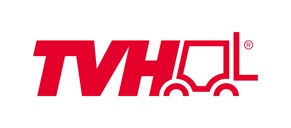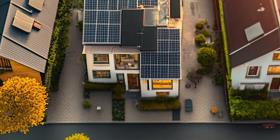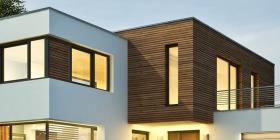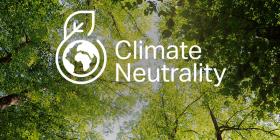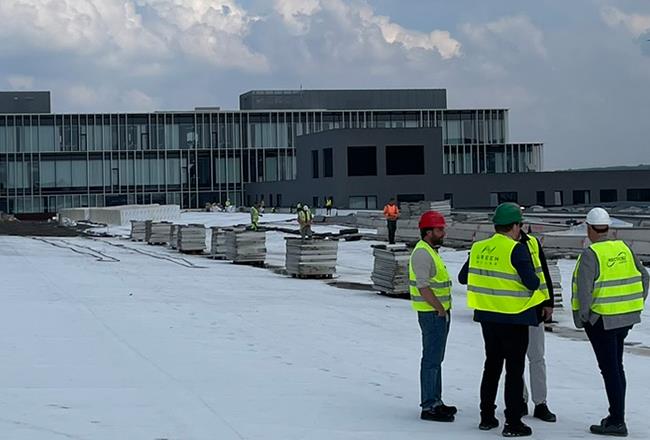
TVH Parts chooses low-carbon Recticel insulation for EE retrofit
Belgium-based TVH Parts, a global distributor of components for industrial, construction, and agricultural machinery, set out to upgrade one of its flat-roofed facilities as part of a major energy efficiency retrofit. The goal? To enhance insulation performance while integrating solar panels - without compromising on sustainability. So, the search for next-generation materials that could both improve energy efficiency and minimize environmental impact was on.
In Europe, creating new net zero buildings2 and renovating existing structures are both key in reaching climate neutrality3. Recticel is a producer of PU foam insulation that shares our vision of more sustainable building practices. The technical challenge was to provide them a low-carbon MDI circular feedstock with the same performance as fossil-based materials. To minimize the carbon footprint, we used an ISCC-certified mass balanced MDI to allocate bio-circular inputs to the insulation.
Achieving high thermal performance while reducing embodied carbon is no small feat. Across Europe, retrofitting existing buildings is just as vital as constructing new net zero ones. That’s why TVH Parts turned to Recticel, a leader in PU foam insulation and a partner in climate-conscious construction. The technical challenge lay in designing an insulation board with low-carbon circular MDI that could match the thermal capabilities of its fossil-based counterparts.
TVH Parts needed innovative building solutions to cut energy use in retrofitting a flat-roofed facility. Our low-carbon Recticel Impact insulation boards deliver 43% lower CO₂ emissions and high thermal performance - ideal for such projects. The roof insulation was expertly installed by Mutec.
Recticel delivered – by using our Desmodur® CQ MS, a climate-neutral MDI that forms the core of Recticels Impact insulation boards. These boards offer the same high performance as traditional options but with a 43% lower carbon footprint, thanks to a 25% share of bio-circular attributed content and ISCC-certified mass balance feedstock. The result is a roof that helps TVH Parts to curb energy loss while contributing meaningfully to the facility’s overall sustainability profile.
Green buildings and energy-efficient construction are essential to achieving climate neutrality in Europe’s building sector. With Desmodur® CQ MS, our climate-neutral MDI, Recticel’s Impact insulation significantly reduces the embodied carbon of rigid PU/PIR insulation solutions.
2 A net-zero energy building (NZEB) is a structure that generates as much energy as it consumes over a year.
3 Climate neutrality is the result of a Covestro internal assessment based on TÜV reviewed EcoPAss LCA method (ID No. 0000083440), of a partial product life cycle from raw material extraction (cradle) to the factory gate (of Covestro), also known as cradle-to-gate assessment. The calculation takes into account biogenic carbont sequestration based on preliminary dat from the supply chain. No compensation measures were applied.
4 Allocation of bio-circular content via mass balance approach. Internal calculation from Recticel.
Key benefits
- Low CO₂ emissions: Climate neutral MDI significantly cuts CO₂ emissions in insulation materials.
- Effective: Low-carbon insulation offers the thermal performance of traditional PUR/PIR.
- Fast: Low-carbon MDI is available for integration into production flows immediately.
- Seamless: Circular feedstocks can be dropped into existing formulations and processes.
- Adaptable: More sustainable PU foam supports gradual product changes to meet climate goals.









